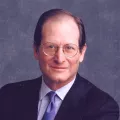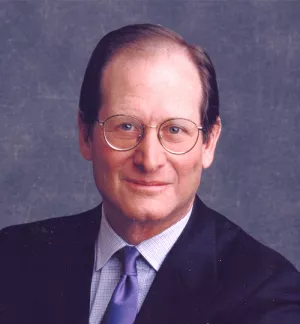As with his off-handed comments at a Marin County fund-raiser during the campaign that people suffering economic dislocation turned to guns and religion, President Obama's remarks about Professor Gates and Sergeant Crowley showed an unusual and surprising insensitivity to the political power of the personal story--in this case the negative power.
The deeper leadership question behind the incident is how the president and other top government officials can use the power of such stories affirmatively to support complex policy prescriptions.
People have almost completely forgotten that President Obama' self-declared goal at his health-care news conference on July 22 was to answer an important question being asked by real people:
With all the charges and criticisms that are being thrown around in Washington, a lot of Americans must be wondering: What's in this for me? How does my family stand to benefit from health-insurance reform?
In his opening remarks, he ticked off, with quite general sentences, benefits for individuals:"If you have health insurance, the reform we are proposing will provide you with more security and stability....It will keep government out of health care decisions [????]....No insurance company will be allowed to deny you coverage because of a preexisting medical condition."
He had two sentences on real individuals--a woman whose insurance company wouldn't pay for her cancer surgery despite her payment of hefty monthly premiums, and a professional who changed jobs, lost insurance and woke up from emergency surgery with $10,000 in debt.
That was largely it for "humanizing" the health policy debate. The following Q&A dealt with the stuff of Washington: eadlines (August?), politics (can the R and D's cooperate in any way?) and various policy ideas (taxing expensive health insurance plans; a special Medicare Board with authority to cut costs...etc).
And, then, of course, the whole effort imploded when, in the last five minutes, the president, without knowing the facts, rendered judgment on a local police story and, without preparing the ground, raised another vital, controversial national issue in a cursory way: racial profiling.
As we all know (!!), at every dinner table and around every coffee pot in the days that followed almost every American argued who was right: the Harvard professor or the Cambridge cop? Without the benefit of a scientific poll, I would venture that following the press conference virtually no Americans debated the hard questions about health care or were any less confused about what it meant for them (if they were confused in the first place).
People could lock onto the Gates-Crowley saga because it was vivid and human and ambiguous---and raised, though hardly answered, emotional and important issues about racial prejudice, the privacy of the home, and proper methods of law enforcement.
Yes, the president deserves some credit for the "beer summit' as successful damage control. But, overall, his personal intrusion into the Cambridge arrest was very damaging: he diverted attention from health care; he failed to teach the nation a lesson on the critical importance of getting the facts right before rendering judgments; and, by subsequently saying that both Professor Gates and Sergeant Crowley were good men but each had overreacted, he put the salient issue of racial profiling to the side and, to some extent, just rekindled the debate about the particular facts of a particular arrest. The general public will have largely forgotten the whole matter by September as the news cycle relentlessly moves on.
But then the question of humanizing the health care debate--the subject of the ill-fated news conference and a great leadership challenge--will return. As the sausage making proceeds apace, can the president mobilize concerned citizens with the many, tragic stories about health care but without doing violence to the complexity of the subject?
He may need to rally the nation around some core principle if the legislative process is not to result in a weakened, self-contradictory bill (such as future cost restraint along with future increased coverage) that leaves many hard questions to the regulatory process. He may need to find the positive public energy for health care that can match in intensity the negative energy of Gates-Crowley.
To be sure, over the past 15 years especially, politicians have orchestrated fanfares to the common man. Firefighters, wives of war heroes, social workers, up-by-their-bootstraps entrepreneurs--all have been acknowledged in the gallery during the State of the Union address. A common trope of the modern political rally is to tell a story or two about a worthy local person who exemplifies a problem or a solution.
This technique is now so common that the American people may cynically view these stories--however admirable the individuals--as yet another prop in the inauthentic governing or campaign costume drama.
So the administration will have to overcome many barriers in humanizing health care and mobilizing people across the nation as the Congress hurtles towards crunch time. An ad campaign, a national town hall meeting where people can speak, another try at a press conference with more vivid stories.....?
We do know that two "people," Harry and Louise, played an important part in defeating the Clinton health plan in an ad sponsored by the then-Health Insurance Association of America.
Can the administration find some key personal health-reform stories that can be discussed at dinner tables and around coffee pots in an affirmative (not the much easier negative) way? To me, that is the most important immediate question to emerge from the illustrative but damaging Gates-Crowley incident.
Heineman, Ben. “The Power of the Personal Story.” On Leadership at washingtonpost.com, August 3, 2009


